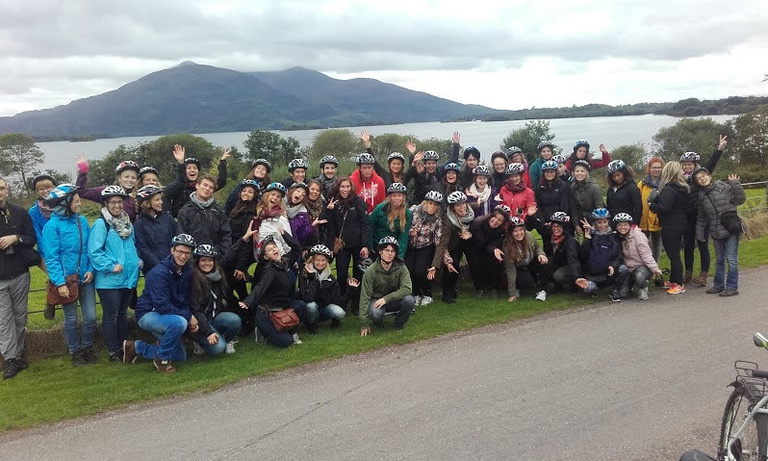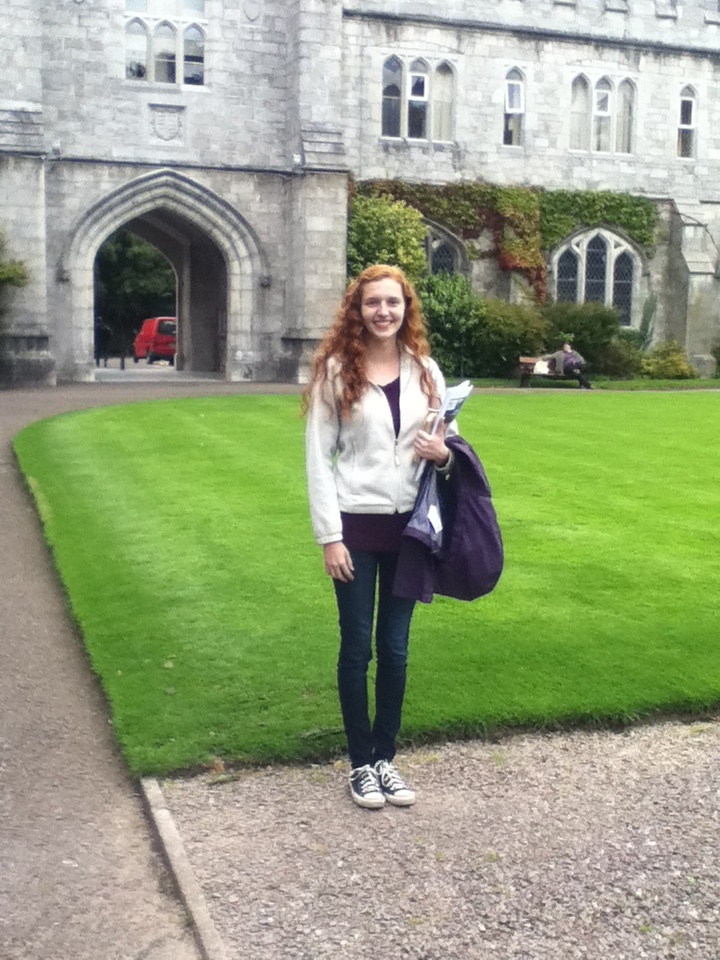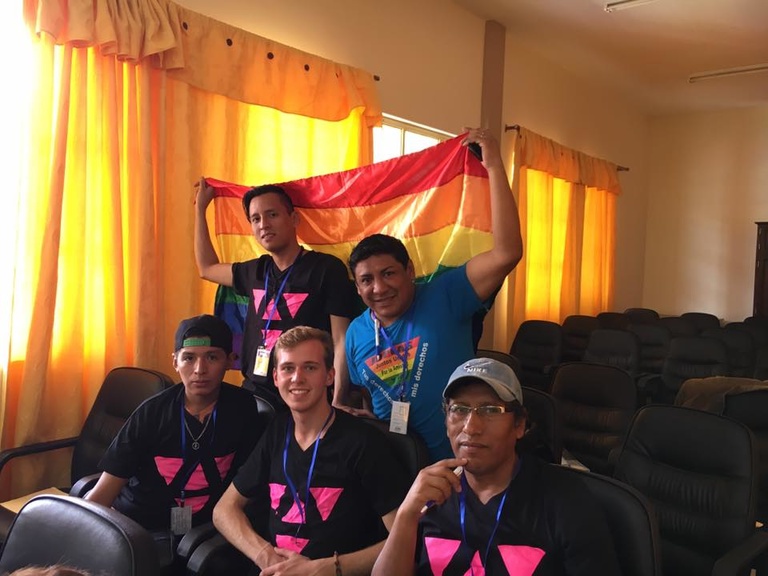
After disappearing from my weekly blog for two months (sorry, UI International Programs!!), I wanted to leave some final thoughts on my time in Bolivia.

Incahuasi Island on the largest salt flat in the world (and Bolivia’s #1 tourist attraction), Salar de Uyuni.
The last two months of my stay were busier than I ever could have imagined as I embarked on my documentary film project on Bolivia’s Gender Identity Law: the second most progressive such law in the world. Travelling from Tarija to La Paz and everywhere in between, I met a remarkable array of people and had some of my most memorable experiences of the last four months. My top 10 were:
-Trying a total of 19 new fruits I had never tasted in my life (My favorites? Achachairú and Chirimoya)
-Hearing the stories of transgender sex workers from the Amazonian region
-Discussing the Gender Identity Law and recent U.S. presidential election with a 28-year-old Socialist senator (her take: the results of the election are unremarkable and only show the true face of the United States).
-Enduring a 17-hour bus ride from Santa Cruz to Tarija without a bathroom and only 3 stops
-Attending Bolivia’s national LGBT conference
-Being in La Paz during the worst water crisis in recent memory
-Interviewing one of the top-ranking transsexual government officials in the world
-Visiting 7 of the 9 departments of Bolivia
-My friend and I were accidentally sold a nude couple’s massage in La Paz
-Seeing someone wearing a black and gold “Beat State” shirt in Cochabamba’s Cancha market (the used clothing trade is WILD)
Additionally, being in Bolivia during the US elections was an ordeal of its own. Everyone had questions and comments (the overwhelming majority negative, although some positive). Even so, relations between the two countries weren’t too cheery even before the election. Bolivia already expelled the US Ambassador in 2008 and closed the door on the Peace Corps twice (the Bolivian government accused the US Embassy of encouraging volunteers to carry out espionage.)

With some friends at the National Congress of Bolivian LGBT Organizations in Tarija.
The opportunity to do independent research and work with LGBTQ organizations in Bolivia was beyond everything I ever could have imagined. The work trans activists have done to elevate and protect trans Bolivians is progressive beyond anything in any other country, save Argentina. Just last summer, the gender identity bill went into effect, granting all trans Bolivians the right to change their gender and name for just $60 in a month-long process. By comparison, in most US states it costs $750 and can be a process that drags from months into years. I am forever indebted to all the trans men and women who appear in my documentary and helped me behind the scenes.
Many upon my return have asked me, “Wasn’t it dangerous?”, “Didn’t you get sick a lot?”, or, worse yet, “What was it like living in a 3rd world country?” My final thoughts for prospective study abroad students: Bolivia is off the beaten path and may not have the sparkling infrastructure of Spain or Costa Rica, but truthfully, I was happier there than ever in my life.
A subtitled preview of my documentary project, “In the Wake of Law 807.”